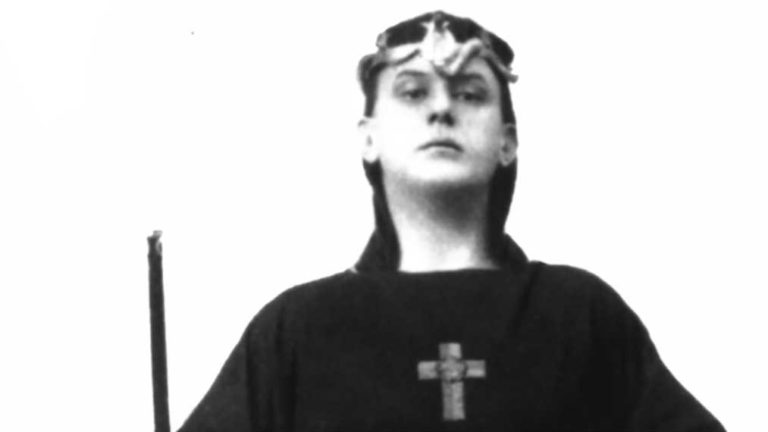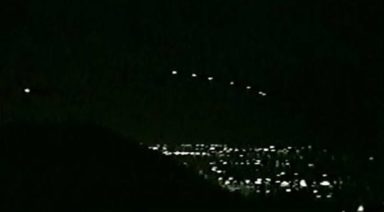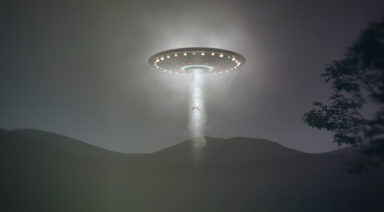Aleister Crowley: The Wickedest Writer in the World

Known as “the wickedest man in the world,” English occultist and author Aleister Crowley actively embraced and contributed to his own notoriety. He delighted in shaking up social status quos, and used his infamy to draw a veil over, and at the same time draw attention to his esoteric work.
Crowley (b. 1875) died in 1947, leaving 61 books, some published during his lifetime — others published posthumously in the 1970s, 80s and 90s. Crowley’s books enjoyed a revival, and Crowley himself achieved cult status during the expanding consciousness revolution beginning in the late 1960s.
Crowley was a prolific writer, and during his life wrote about the Qaballa, yoga, and the “Goetia,” attributed to the biblical King Solomon. He also penned commentaries on Thoth, “the Tarot of the Egyptians,” and the esoteric use of drugs to name but a few.
Crowley the Drug Fiend
The 1922 novel, “Diary of a Drug Fiend” was, according to Crowley, “A true story, rewritten to conceal personalities.” In his quest to understand the influence of different types of drugs on the mind, Crowley was captured by heroin, documenting that struggle in “Diary of a Drug Fiend.” He also experimented with and wrote about psychoactive substances, including absinthe (The Green Goddess, 1917), hashish (The Psychology of Hashish, 1909), and cocaine (Cocaine, 1917). Crowley also published “A Pharmaceutical Study of Cannabis Sativa” by E.P. Whineray in his March, 1909 issue of his journal The Equinox.
Ever in search of peak experiences, epiphanies, and absolute insight, Crowley advocated incorporating drug use into all magickal ceremonies, demonstrating his drive to experience expanded consciousness by any means necessary. He believed that the use of these substances would succeed where religion and science had failed to solve the rubric of the true nature of reality.
The Moonchild
Published in 1929, “The Moonchild” was another work of fiction based on actual people and events. Characters based on the famous and infamous of the time were given fictitious names — Dancer Isadora Duncan appeared as Lavinia King, and inventor of the Rider-Waite tarot, A.E. Waite, appeared as Arthwaite.
The work is the story of a war between dark and light magicians over an unborn child imbued with a special soul — the moonchild. The book embraces the WWI geopolitics of the time — in the end, the white magicians become associated with the Allied forces and the dark sorcerers affiliate with the “Central Powers.”
Thelema and the Book of the Law
While Crowley was a prolific writer and commentator, it was the mystery religion Thelema that he viewed as his most significant legacy. Adherents were known as “thelemites,” and their “bible” was “The Book of the Law.” Famously, the fundamental message of Thelema was, “Do what thou wilt shall be the whole of the law.” The only modifier was “Love is the law, love under will.”
The Thelemic concept of “true will” in the context of “Do what thou wilt” was seen as the impulse and drive created by inborn destiny; the blueprint of the divine. The goal was to defeat and eliminate habitual unconsciousness, false perceptions and desires, and any other distractions from the divine will within. Crowley sought a method to discover a child’s true will at the time of birth, believing that if this was accomplished, it was a simple thing to establish a “correct” social order based on divine will.
Crowley stated that the Book of the Law was dictated by an entity named Aiwass, but Nuit, Hadid, and Ra-hoor-Khuit appear to give dictation as well. Later, Crowley asserted that Aiwass was, in actuality, his “Holy Guardian Angel.”
The Holy Guardian Angel
Crowley’s Holy Guardian Angel (HGA) is borrowed from Catholicism — one Catholic prayer reads,
“Dear angel at my side, you have been with me since I was born.
You are my own personal guardian given me by God as my guide and protector.”
The HGA is mentioned again in a German 15th century ceremonial magic text written by Abraham of Worms, known as a Cabalist. Later the text, titled “The Sacred Magic of Abramelin the Mage,” was translated by members of the Order of the Golden Dawn — Crowley had been a member prior to founding his own Order of Thelema.
When Crowley left the Golden Dawn, he took the concept of the Holy Guardian Angel with him, embracing it as, “The central and essential work of the magician.” As far as he was concerned, to meet the HGA was to also have clear insight into one’s predestined “will.” Crowley sought “knowledge and conversation” with the HGA, and taught that it could take a lifetime of work to discover and communicate with the HGA.
Crowley believed that the complex methods of reaching the HGA from the Abramelin the Mage text were overly intricate and time-consuming, although he admitted that his methods were devised to “intoxicate and anaesthetize him [the practitioner] so that he may not feel and resent the agony of this spiritual vivisection.” He gave his instructions for contacting the HGA in his work “Magick Without Tears.”
Some have likened Crowley’s HGA to the daimon of Greek mythology — a guiding spirit that brought a protective presence. To Plato, daimons were spirits that watched over their human, corresponding to the idea of a higher self.
Achieving Modern Enlightenment With Gurdjieff's Fourth Way

Around the turn of the 20th century, the mysticism movement aimed to bridge the gap between western and eastern philosophies with theosophy, esotericism, and a burgeoning interest in the occult. This spiritual zeitgeist inspired George Gurdjieff to develop the Fourth Way; exercises that can be incorporated into one’s daily life to remove yourself from a state of hypnotic waking sleep.
The Fourth Way: Hindu, Sufi, And Christian Esotericism
Deeply devoted spiritual practices often focus on either a detachment from the physical or a strict dominance over it. Georges Gurdjieff did not see these attempts to embrace a higher self as practical, believing instead that enlightenment could be achieved without asceticism.
Born in 1866 in Alexandropol, Armenia, Gurdjieff was inspired by the theosophical movement and decided to travel to Central Asia and the Middle East in search of esoteric spiritual leaders and seekers of truth. Upon his return, he penned a series of books that would become the foundation of his spiritual practice: The Fourth Way. The second book in the series and 1979 film, Meetings with Remarkable Men, detailed his encounters with spiritual leaders on his journey who were more likely fictional characters symbolic of the three “ways” preceding his.
During his travels, he was inspired by the spiritual ways of the fakir, monk, and yogi, though he saw their methods as only successful in achieving a fraction of development, with the more practical roots of their disciplines lost in antiquity. At the same time, he believed that the effects of modern technology and society were entrancing everyone into a hypnotic waking sleep.




































